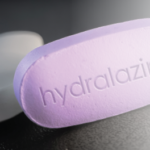A mouse model of skin fibrosis showed that JAK2 injections led to increased dermal thickness, increased collagen content, and increased myofibroblast numbers, Dr. Dees said. “However, treatment with a selective JAK2 inhibitor almost completely prevented the development of fibrosis and decreased dermal thickening,” she said. This kind of treatment could be used for early inflammatory stages, she added.
The inhibition of JAK2 prevents fibrosis in inflammatory as well as noninflammatory models of fibrosis, Dr. Dees concluded. “Inhibition of JAK2 reduces the basal synthesis of collagen selectively in systemic sclerosis fibroblasts, but not in control fibroblasts,” she said.
An IRF5 Variant and Systemic Sclerosis
A functional variant of the gene interferon regulatory factor 5 (IRF5) for the treatment of systemic sclerosis was discussed during a presentation from Shervin Assassi, MD, assistant professor of medicine in the division of rheumatology at the University of Texas Health Science Center in Houston. He presented a study investigating the impact of non–major histocompatibility complex susceptibility loci on survival and severity of interstitial lung disease in systemic sclerosis patients. New treatments are especially important in systemic sclerosis, where morbidity and mortality rates are higher than most other rheumatic diseases, Dr. Assassi said.
The study population was 1,443 patients with systemic sclerosis divided into a discovery cohort (914 patients) and a replication cohort (529 patients).
Investigators found that only one single-nucleotide polymorphism (SNP) in the IRF5 gene—rs4728142—was associated with patient survival. Even after investigators adjusted their analysis for disease duration and other factors, the prominence of rs4728142 with survival was clear.
“In this case, the minor allele has a frequency of 49%, which makes it potentially suitable for biomarker development,” Dr. Assassi said.
“The minor allele of a SNP in the IRF5 promoter region is associated with lower IRF5 transcript levels and is predictive of better survival and milder interstitial lung disease in patients with systemic sclerosis,” Dr. Assassi said. “This provides further support for the importance of genes involved in the type I interferon pathway in the pathogenesis of systemic sclerosis and has potentially important implications for biomarker development and the identification of therapeutic targets.”
This particular allele also might be used with scleroderma renal crisis, the severity of gastrointestinal involvement, and pulmonary hypertension, Dr. Assassi said.
Behçet’s Disease Targets
Yohei Kirino, MD, PhD, a fellow in the inflammatory disease section of the medical genetics branch at the National Human Genome Research Institute in Bethesda, Md., discussed a genome-wide analysis of imputed genotypes that identified CCR1, CCR3, and STAT4 as novel candidate risk loci in Behçet’s disease.
Treating RA Patients with Rheumavax
Ranjeny Thomas, MBBS WA, MD WA, of the Diamantina Institute at Princess Alexandra Hospital at the University of Queensland in Brisbane, Australia, presented evidence regarding Rheumavax for the treatment of patients with RA. Rheumavax is a vaccine derived from the patient’s blood, and involves autologous dendritic cells exposed to citrullinated peptides.


